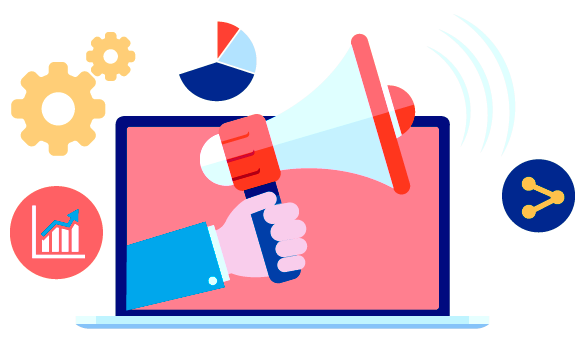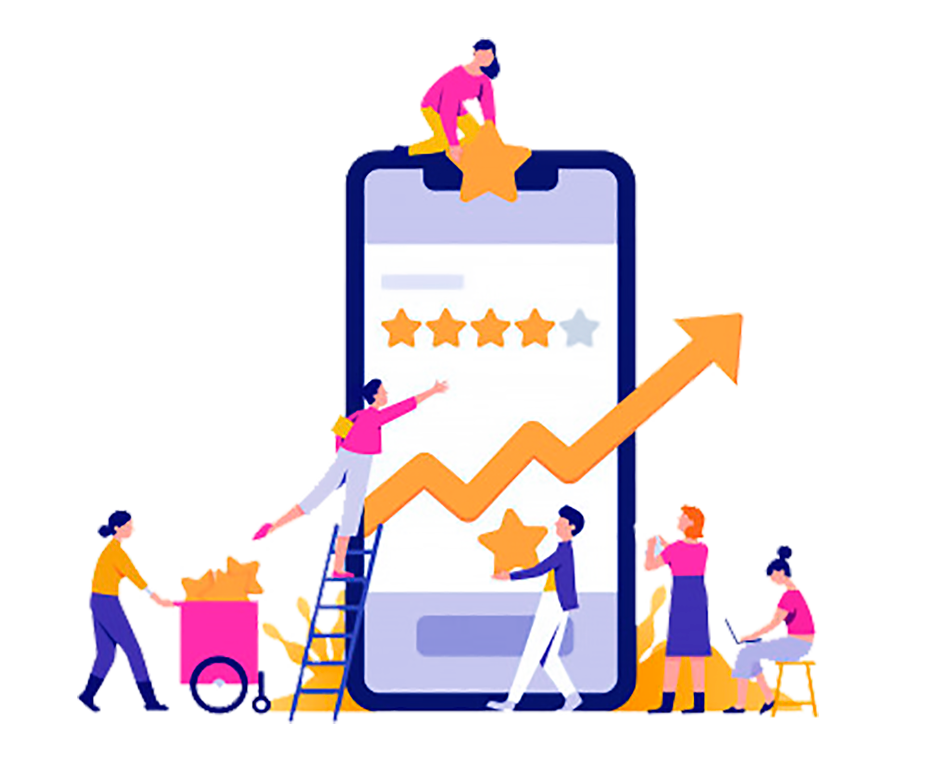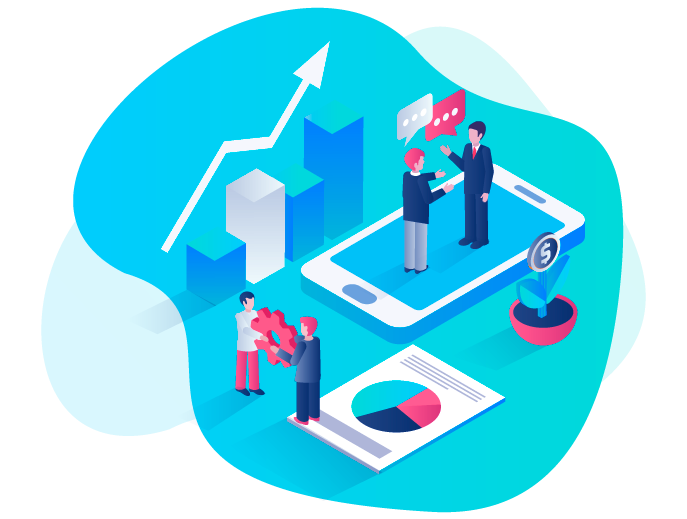Marketing Automation is the entire set of processes and technologies capable of streamlining marketing activities to make them more on target. It combines different platforms, software, and databases to manage all aspects of the Digital Campaign.
With Marketing Automation you can market more effectively on multiple channels online and automate repetitive tasks.

Two Fundamental Aspects

WORKFLOW AUTOMATION
Workflow automation transforms internal processes by using technology that automates manual work, like data entry and lead nurturing. Workflow automation can help your business save time and money, diminish errors, and boost productivity.
Why should Marketing Intelligence and Business Development be in your future?
Through Workflow Automation companies can:
– Lower costs
– Reduce risks
– Improve predictability
– Enhance the quality of their services or products
– Enhance the consistency of their process
– Raise Brand Awareness and protection
– Simplify operations
BUSINESS DEVELOPMENT
Business Development is a branch of Digital Business that uses Marketing Automation Technologies and Procedures.
It is focused on guiding potential customers, or prospects, down the Purchasing or Sales Funnel, turning them into future clients. The Sales Funnel is a consumer-focused model that illustrates the theoretical customer journey toward the purchase of a good or service. Importantly, the number of people coming out of the bottom of the funnel directly impacts the number of people who are willing to enter the top of the funnel, based on their experience.
This funnel can be entirely processed by automation, developing two fundamental Marketing concepts: Segmentation and Nurturing. Both are based on the interests expressed by prospects engaging with your website, to quantify and understand the will of the visitor.
The data gathered is based on fit and intent, and the magic of Business Automation is that it attempts to close the gap between prospect and client, based on a combination of behavioural and attitudinal measures.
Automated Business Development works hand in hand with the philosophy of Digital Inbound Marketing. A good strategy touches all the important points within a company, including email outreach, social media, search engine optimization, advertising, customer experience, and content marketing/creation.

The Main Benefits of Marketing Automation
Marketing Automation FAQ
From day zero. Today as never before, dozens of platforms can build fluid marketing campaigns. Consider automating your marketing campaigns if any of the following apply:
- Your website has a small flow of traffic
- You or your salesforce do not know how to effectively convert prospects into clients and are unsuccessful at funnelling leads
- You do not know how to transform an MQL into an SQL
- Your internal procedures are not clear or streamlined in all the departments of your company
- You want higher email engagement
- Your sales process is still manual
- You spend too much time managing your digital strategy (from SEO to Social)
- You want to leverage influencer marketing and content amplification strategies
As we said before, Marketing Automation is not just the implementation of technology, it is the entire set of processes and technologies capable of streamlining marketing activities. Call on our experts to help you set up and execute your goals throughout the entire process model of your company.
Absolutely not!
The difference between Email Marketing and Marketing Automation is that while both tools use email as the primary channel to engage with your audience, email service providers track only the actions taken by recipients of your email blasts.
Marketing automation software, on the other hand, monitors every digital interaction a lead has with your business, giving you the tools to engage with them on a more personal level.
In most CRM systems, the term lead capture designates a process of saving lead information to attempt converting the lead to a paying customer.
Examples of a lead capture page or a lead capture can be:
- A newsletter subscription
- A request for a quote or consultation
- Downloadable content (PDF, PowerPoint)
- A webinar subscription
- Inserting a product in the cart
- Compiling a form
The information we can capture is then divided into two significant areas: Informational Naming and Company Data, such as their Linkedin profile, Net Profit, Size, Industry, Title, and Address. The Company’s lead can be gathered just by visiting their website!
After the lead is captured, specific actions are triggered to follow up with the lead or track the lead in all Digital Areas, for example:
- Call to lead
- Email to lead
- Social to lead
Marketing automation is software used to perform repetitive marketing tasks and to measure and enhance your overall conversion rates.
CRM stands for Customer Relationship Management and it is used for contact management, sales management, customer relationships, and interactions with existing and potential customers.
Marketing Automation and CRM need to work together to create a comprehensive business ecosystem.
Which Types of Marketing Automation Technologies Should Your Company Use?
Companies Using Automation
- Yes
- No
- Yes
- No
Reported Lead Lifts
- Drastic Increase
- Some Increase
- No Increase
- Drastic Increase
- Some Increase
- No Increase

